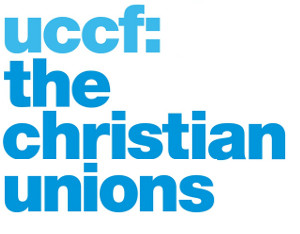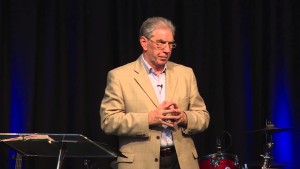O n a day (October 7th) when we are to hear the sentence given to the former Bishop of Gloucester for historic sexual abuse and misconduct in public office, it is a moment to reflect on the full horror of this evil in the church. In Catholic, Protestant or Free Church environments over the decades some children and young people have suffered gravely. Their suffering and the enormous pain which they have endured is important in itself for us to understand. But the sexual abuse of young people is also like a cancer which goes far beyond its victims to corrupt and desensitise institutions where it takes place and is not properly dealt with. I do have a personal interest in the Gloucester saga. I was a Vicar in that diocese at the time when Bishop Peter arrived and later received a phone call from my Rural Dean to let me know that he had resigned after the police caution. I have in other words to reflect on my own feelings at the time as this event unfolded. I must confess that in 1993 I felt that there was an untold story in the background which was not being told, but I thought that this story, when it was fully revealed, would be favourable in some way to the Bishop. In other words I was, like the majority of the clergy in the diocese at the time, simply unable to process the fact that a man of God had been so completely unable to care for young people in his charge.
n a day (October 7th) when we are to hear the sentence given to the former Bishop of Gloucester for historic sexual abuse and misconduct in public office, it is a moment to reflect on the full horror of this evil in the church. In Catholic, Protestant or Free Church environments over the decades some children and young people have suffered gravely. Their suffering and the enormous pain which they have endured is important in itself for us to understand. But the sexual abuse of young people is also like a cancer which goes far beyond its victims to corrupt and desensitise institutions where it takes place and is not properly dealt with. I do have a personal interest in the Gloucester saga. I was a Vicar in that diocese at the time when Bishop Peter arrived and later received a phone call from my Rural Dean to let me know that he had resigned after the police caution. I have in other words to reflect on my own feelings at the time as this event unfolded. I must confess that in 1993 I felt that there was an untold story in the background which was not being told, but I thought that this story, when it was fully revealed, would be favourable in some way to the Bishop. In other words I was, like the majority of the clergy in the diocese at the time, simply unable to process the fact that a man of God had been so completely unable to care for young people in his charge.
Over recent days I have found an important report* which is an independent enquiry into the sexual and physical abuse of children that took place in the Congo in a school for missionary children in the 50s, 60s and 70s. The particular school at the centre of the investigation was run by the Presbyterian Church of the USA. It is a story which has been repeated in many places in our society. Young children were abused by some who were there to care for them and their stories, although shared at the time, were not believed. The document is notable for its thoroughness and the way that it discusses the whole issue of child sexual abuse within the church. It also lays down the criteria which allowed the committee to accept the credibility of the reported abuse. Also recorded is the frustration of the committee over the fact that many confidential personnel files in the States of potential relevance to the enquiry had been shredded or were unavailable. They were forced to rely on witnesses, i.e. the abused children and their fellow pupils, to establish the facts. For the reasons they give, they were satisfied that they had uncovered the factual truth. One prolific perpetrator was guilty of systematic sexual abuse both in the Congo and in the States for 40 years until his death in 1999. The report does not give his name but we gather that he was an amateur hypnotist. Although he had no professional qualifications in this area, he was allowed to practice his technique on children who were sick. Another detail that was given to the report, which contributed to the reluctance of the authorities in the church to challenge him, was that he was charismatic and very good at fundraising when he returned to the States and spoke in local churches, seeking financial support for the Presbyterian mission. When the accusations began to surface in the late 90s, it is notable that his wife, who no doubt would have had her suspicions of inappropriate contact with young girls, was his fiercest defender. The girls, she claimed, had misunderstood his touch or in one case of one child, was guilty of initiating it.
The detailed examination of the way that one particular individual was identified and his interactions with the church and mission board carefully examined, do not concern us here. What is important about this report, which makes it worthy of attention, is that it sets out a full account of good practice connected with the needs of sexually abused children in churches that was up-to-date when it was written in 2002. No one can be allowed to play down the devastating effects of sexual abuse on children, particularly when they are in a situation of receiving no protection from their own parents. For the abused the typical symptoms are set out, flashbacks, guilt, self-absorption and the destruction of healthy self-esteem. It needs hardly to be said that churches should never be places where such damaging behaviour is possible. An abused child who does not receive any help, will quite possibly grow up to be an adult who cannot achieve intimacy and trust in another. It is hard to imagine a greater deprivation for anybody to experience than to lose the ability to form deep relationships.
Another interesting issue which this report touches on is the way that retired missionaries themselves later responded to the incontrovertible evidence of sexual abuse within the school. This after all had been set up to educate and protect their own vulnerable children and those of their own colleagues. Some of them, like the clergy of the Gloucester diocese, were not able to believe the facts and others wanted to trivialise them. The old adage, ‘forgive and forget’ was trotted out by some. Even from the perspective of 2002 this particular piece of advice was shown by the report to be completely and utterly inadequate as a way of dealing with matters of such gravity and seriousness.
The hierarchical nature of the Presbyterian Church in the States meant that some processes of discipline could be put into effect against erring employees. At least one other sexual offender had been identified and sent back home from Africa. The national leaders were however not able to prevent the main identified abuser from practising his crimes over 40 years, even though they took some steps to support and compensate some of the victims when the crimes eventually became public knowledge. If a denomination with overseeing powers like the Presbyterian Church finds it difficult to regulate its employees, imagine how much more difficult it is for due process to be observed in churches with a structure which lacks any oversight. This is the situation for places like Peniel Church in Brentwood. Vulnerable individuals, especially women and children, will always be in great danger where there is no place of appeal against a tyrannical pastor. The historic credible claim of rape at Peniel only became heard because of the concerted efforts of an independent individual, Nigel Davies. By his providing a platform to help all those who have suffered the horrors of that dysfunctional church regime, the voice of the rape victim could be heard. The Internet, the law and the court of public opinion are now, thankfully, providing a much more effective platform for those who hitherto have found it difficult to receive justice amid attitudes that simply cannot face up to the horror of sexual abuse of children in churches. That behaviour, as readers of this blog will know, is just one of the manifestations of Christian abuse, albeit the worst.
*http://www.pcusa.org/media/uploads/ici/pdfs/ici-report.pdf








